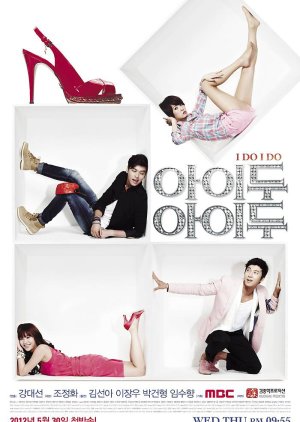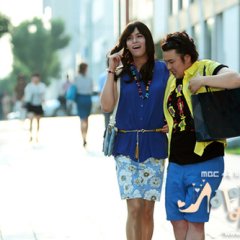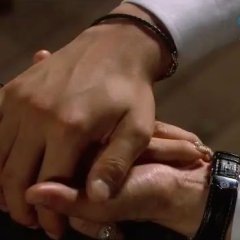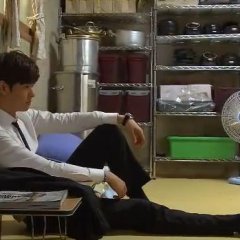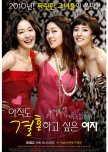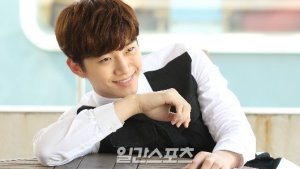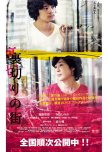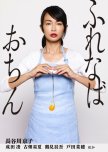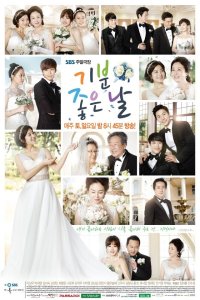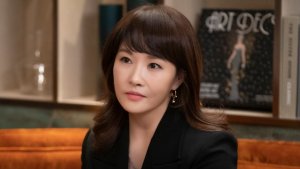 Kim Sun Ah in discussion to star in the new revenge drama from Channel A
Kim Sun Ah in discussion to star in the new revenge drama from Channel A - Français
- Español
- Polski
- English
- Titre original: 아이두 아이두
- Aussi connu sous le nom de: Live straight , Love Coolly
- Scénariste: Jo Jung Hwa
- Réalisateur: Kang Dae Sun
- Genres: Comédie, Romance
Où regarder I Do, I Do
Subscription
Distribution et équipes
- Kim Sun Ah Rôle principal
- Lee Jang Woo Rôle principal
- Im Soo Hyang Rôle principal
- Park Gun Hyung Rôle principal
- Jo Hee BongSeol Bong SooRôle Secondaire
- Shin Seung Hwan[Tae Kang's friend]Rôle Secondaire
Critiques

It tells an ordinary story in a refreshingly modern way, without giving up on those elements we inevitably associate to k-dramas and make them into the shows we are all addicted to: a love triangle or square of some sort, love obstacles of various nature, parents who meddle but without being completely unreasonable or out of this universe evil and a corporate sub-plot.
I wouldn't call this a romantic comedy. I think it's more of a life drama. There's romance, of course, and there's a mature, clever humour, but both these aspects are rationed throughout the narration in a sedate and yet very effective way. This is why I believe I do, I do isn't for you, if what you're looking for is a typical rom-com. The pace may deter some, and others could find the raised issues uninteresting or controversial.
I loved it because it offers the viewer a range of different points of view on subjects which are very common in real life, and not so common in the Korean drama world; there's no judgment involved, no stance is presented as better than the other. It's up to you to decide what you would do and how you would react in a similar situation.
A life drama is only successful when the characters are well outlined. And this is the true strength of I do, I do. I myself was amazed at how gradually and yet fiercely I got attached to some of the characters, mainly the two leads. They are both so well portrayed I ended up identifying without having a trait in common with either one.
Acting is spot on. I consider Kim Sun A a guarantee. I may not like all the dramas she acted in, but it's never been due to her. She enters the character in such a plausible way, she does not create fictional characters but real persona. Always believable, never predictable. And let me add how wonderfully satisfying it is when you finally land on a drama with an intelligent, self-assured, successful female lead who does not passively accepts events but make them happen!
The character of Tae Kang has been an amazing revelation for me. A cute thing who looks like a puppy and acts like one is all I believed he was in the beginning. I was very wrong. He's tremendously endearing and such a blend of childlike enthusiasm and caring maturity I couldn't help but being completely captured by him. My admiration goes to the actor for capturing the essence of his character and portraying it in such an adorable way.
The chemistry between those two is also a work-in-progress. Their feelings grow as the characters grow. We fall in love with Tae Kang the moment Ji An does, not before. I loved this aspect the most, as I am usually very frustrated by knowing a truth which the characters will be oblivious about for three quarters of a drama.
The secondary characters are normal people. They make mistakes, they gossip, they laugh, they get angry. With the exception of "madame CEO" - and her horrid taste in figurative art, allow me to add - I liked them all. Everyone has an arc and a role in this story. They are not thrown in just in order to fill empty spaces.
The music isn't unforgettable, but I must confess the main theme is addicting and the instrumental pieces very well chosen.
This isn't a drama I will run to re-watch as soon as it's finished airing. However, it has many delicious, thought-provoking and poignant moments I'll be more than happy to immerse in again in the future. I recommend this drama to everyone who likes a solid, modern script, unusually believable characters and a no-nonsense plot.
Cet avis était-il utile?

unterwegsimkoreanischenD
29 personnes ont trouvé cette critique utile
Cette critique peut contenir des spoilers
Within the aura of a love story some socially critical topics on successful woman, work & family
"I Do I Do" tends to be humorous, offers a nevertheless emotional love story and at the same time the backdrop for the critical processing of a merciless everyday professional and living environment to which women in South Korea are exposed. As also, for example, "Romance is a Bonus Book", "Scent of a Woman", "Revolutionary Love" or "Angry Mom" the KDrama uses the comedic touch to lift the emphasis of the topic into a lighter tone that is easier to digest. Cheerful and serious aspects are well balanced, also thanks to a great cast.
Within the aura of a love story "I Do I Do" comes along with some socially dominant topics around woman, work and family that want to critically be processed. "I Do I Do" precedes "Now, We are Breaking Up" by nine years. Not much has changed in the status of the professional life of a successful woman (in the fashion scene). The scenario reminds here and there: the experienced, successful and talented designer (here elegant pumps) who has chosen career over relationship/marriage/family; the parents who want their daughter to finally get married properly; a younger man who, after a one-night stand, throws the orderly life of the confident businesswoman upside down. In the case of "I Do I Do", the protagonist ends up in a one-night stand, which is rather untypical for her (and him) due to a chain of special circumstances. The hook for further drama is her completely unexpected pregnancy. ... and 37-year-old Hwang Ji-ahn, still being single, having just been medically diagnosed with a premature menopause...
------------------------------- SIDE NOTE: --- Woman, Work and Family as far as South Korean society is concerned ---
- A woman (in South Korea) can perhaps be successful, but the price for this is her woman-ness (as in many places on earth...). She proves herself to be a better man and simply has no room for relationships where she could live out her soft, tender, feminine side. Showing her weakness at work whatsoever would jeopardize her position. Competitors are already waiting for a devastating neckbutt.
- A woman can be excellent and even unique in her work. From a marketing point of view, however, it is more promising (because it is more binding for business partners) if a man bears the official, managerial responsibility for business sucess... because who knows when the woman will leave the professional world behind and take up her role as wife and mother... The dramaturgical dynamics in this regard are astonishingly differentiated in "I Do I Do". There is even room for the aspect of how women envy each others decisions for either way (instead of solidarily supporting each other - here and there).
- A woman should get married. She can mercifully let off steam for a while in her professional life, since society has already become about 10 years more tolerant in 2012 than in the decades/centuries/millennia before. But the age of 37 is (biologically speaking) a magical limit... because now it's high time. (The KDrama actually offers an exceptional man as a role model who thinks progressively here...)
- Dating, a woman automatically becomes the one who needs/wants to be protected and the one who in turn provides the man with allround care. What a mess, if roles lose their clear assignments. Here, too, the KDrama offers, among other things, another (different) exceptional male role model - one who (although instinctively a protector, too, but nevertheless) is ready to develop in a different way.
- And then equally valid for men and women: relationship is not a private matter. At least the parents are the first to have a say.
-Also: The greatest happiness in life should be a permanent position. Everything else is extra...
---------------------------------------------------
"I Do I Do" defies these societal norms, which in South Korea seem to be chiselled in stone. This is no piece of cake. Interestingly, the KDrama offers only one answer to the question "What are the arguments in favor of deciding to have a child or a family as a professionally ambitious woman?" - this in the face of an almost endless list of reasons that argue against it... This single commitment to a "yes" (towards children and family) is located beyond rationality. This "yes" has nothing to do with virtue and values. This one and only "yes" argument is completely personal. (My respect for taking such a position - one that actually stands outside of society´s right to have a say in this!)
After all, "I Do I Do" eventually shows another variation in the Cinderella spirit of fairy tale love stories ... But. I consider the way as the goal! And the path described in this KDrama (the circumstances and processes of the main protagonist) makes it definitely worth seeing. In addition, Kim Sun-ah finds a good balance between a competent, unapproachable boss and an approachable, not so competent 'woman' with her heart in the right place. Lee Jang-woo also convinces me here in his role as the much younger, impulsive, unconventional Park Tae-kang.
By the way: Since it is about the world of fashion designers and pumps in particular, it would be worth mentioning that the viewers get to see a lot in this regard. Not only in Ji-ahn's well-stocked private shoe room, but also beyond that - 500 pairs of pumps were brought up for the series that were supposedly worth almost 9,000 euros. Also, the protagonist Ji-ahn's individual fashionable style (which goes back mainly to Kim Sun-ah's specific, personal suggestions) became a trendsetter at the time.
Cet avis était-il utile?

